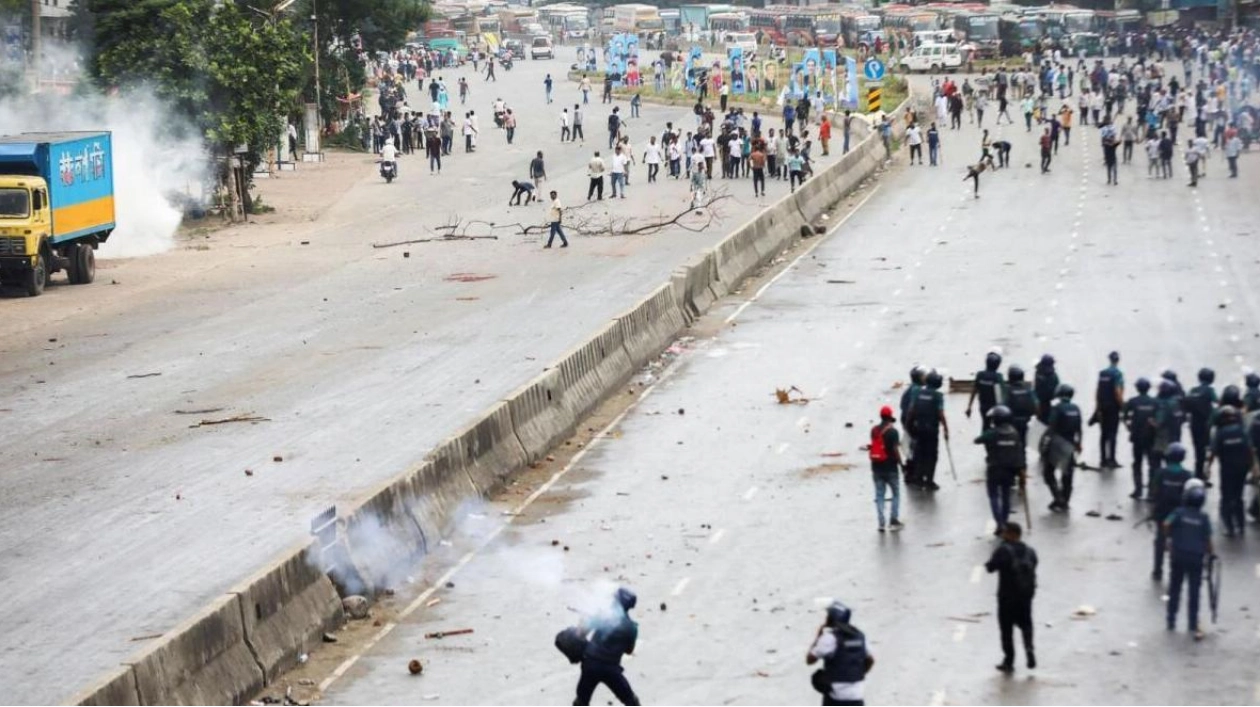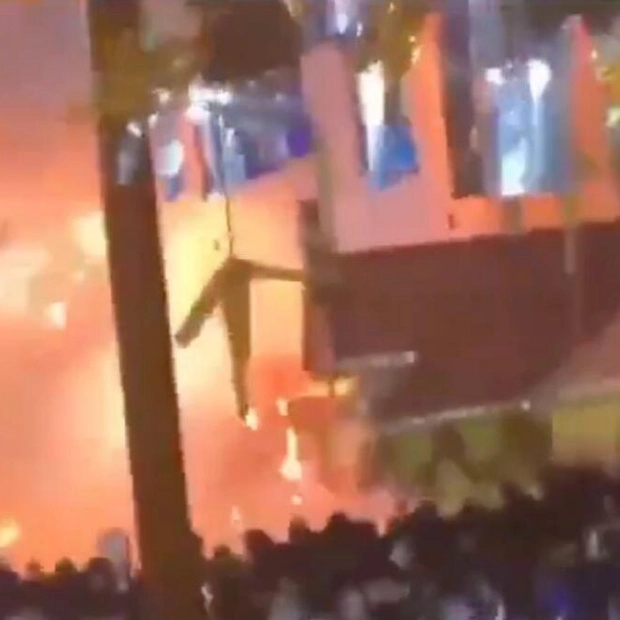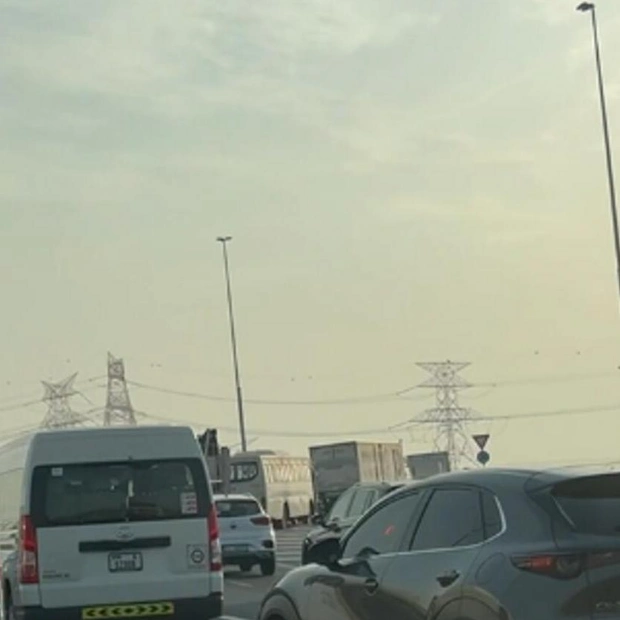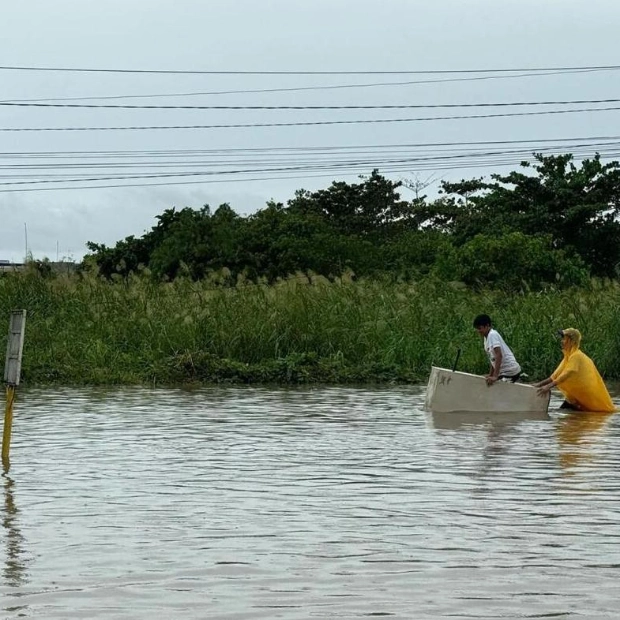Police in Bangladesh resorted to using tear gas and sound grenades on Wednesday to disperse protesters who were marching to protest against the violence that claimed at least 150 lives this month during student-led protests against job reservations. This unrest marks the most significant challenge Prime Minister Sheikh Hasina, 76, has faced since her fourth consecutive term victory in January elections, which were boycotted by the main opposition Bangladesh Nationalist Party and were also marred by deadly protests. Police reported that they had to use force when protesters in the northeastern district of Sylhet breached barricades en route to the courts. "We asked the protesters to clear the road, but they ignored us and assaulted the police, compelling us to use tear gas and stun grenades to disperse them," stated regional deputy commissioner Azbahar Ali Sheikh. Conflicts between police and protesters were reported in several locations, including Dhaka, the capital, and the southern port city of Chittagong, according to domestic media. The exact number of casualties was unclear, although media reported some injuries and student detentions. Wednesday's nationwide "March for Justice" was organized by the Students Against Discrimination group, which spearheaded protests against government job quotas. Despite agreeing to end their protest after the Supreme Court abolished most quotas on July 21, students resumed demonstrations to protest the deaths, arrests, and government intimidation stemming from this month's violence. "We will also call for a United Nations investigation into the violence," added Mohammad Mahin Sarkar, a movement coordinator, in a statement. International rights groups have criticized the nearly 10,000 arrests over the past two weeks on charges of involvement in clashes and destruction of government property. At an event in Dhaka, Hasina announced that Bangladesh had requested assistance from the United Nations and various international bodies. "We seek their help in conducting a thorough investigation and ensuring punishment for those accountable," she added. The European Union postponed talks with Dhaka on a new cooperation agreement aimed at enhancing trade, economic, and development ties due to the current situation. However, a finance ministry official stated that the delay, until the first week of November, was decided before the recent violence. "This delay was due to the UN General Assembly," said Uttam Kumar Karmaker, the official, in a statement. In recent weeks, Bangladesh imposed internet shutdowns and deployed the army to enforce a nationwide curfew as the protests escalated into widespread agitation since their inception in universities and colleges in June. Thousands were injured as security forces used rubber bullets, tear gas, and sound grenades to disperse tens of thousands of protesters who took to the streets. Hasina's government also announced plans to ban the main Islamic party, Jamaat-e-Islami, and its student wing, both of which Dhaka accuses of instigating violence during the protests. "For the country's sake, the decision has been made," Law Minister Anisul Huq told Reuters, indicating that the ban would likely be enacted through an executive order on Wednesday. Dhaka has established a judicial inquiry to thoroughly investigate the violence, Huq said. Jamaat condemned the decision by Hasina's ruling alliance as "illegal, extrajudicial, and unconstitutional" in a statement, without specifying what actions it would take. "Using state machinery, they are engaging in a blame game against Jamaat and other opposition parties," said Shafiqur Rahman, the party's leader, which, along with the opposition, denied the government's claim that they incited violence. Jamaat was effectively disqualified from participating in elections after a court ruled in 2013 that its registration as a political party was incompatible with Bangladesh's secular constitution. Rights groups and critics argue that Hasina has grown increasingly autocratic during her 15 years in power. The United Nations, global rights groups, the United States, and Britain have all criticized Dhaka's use of force against demonstrators.

Text: Lara Palmer
31.07.2024
Prime Minister Sheikh Hasina Faces Biggest Challenge Since January Elections





